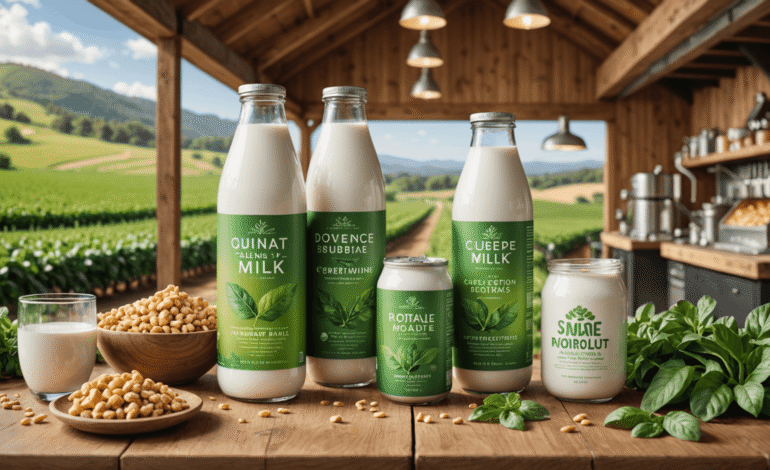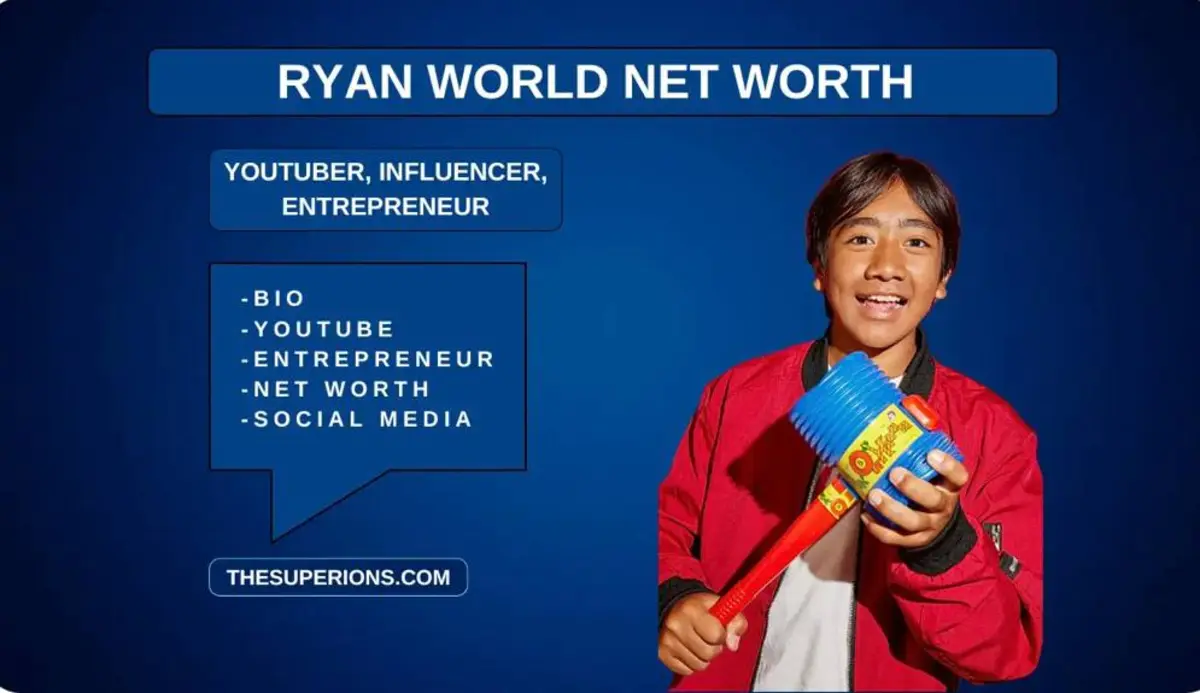

What’s really going on with numilk net worth?
If you’re an investor scanning headlines or weighing a move into the alternative dairy market, these questions probably sound familiar:
How much is Numilk actually worth?
Does its strategy outpace legacy brands like Oatly or Ripple—or is it just another wellness fad?
And what does that big Shark Tank check from Mark Cuban mean for future growth?
All of which is to say: There are plenty of figures thrown around online, but little context.
You want more than hype—you want to know if this company can deliver sustained value.
Let’s cut through marketing noise and look at where Numilk came from, who put money down when it mattered most, and what fundamentals shape the business beneath those slick kiosks and health-conscious Instagram posts.
We’ll break down how founders Joe Savino and Ari Tolwin positioned their startup right at the crossroads of fresh food tech, consumer health trends, and eco-friendly innovation—so you can decide if Numilk fits your investment thesis or not.
Here’s what you need to know about its roots before diving deeper into valuation debates:
[Note: This analysis requires updating with the most recent available data. Consider all numbers and valuations as estimates based on publicly available information at the time of writing.]
Company Origins And The Shark Tank Inflection Point For Numilk Net Worth
At its core: Numilk began life back in 2018 as a bold idea between two entrepreneurs—Joe Savino (whose knack for operations runs deep) and Ari Tolwin (a beverage veteran).
Both saw cracks in old-school dairy and decided there was room for something fresher; not just almond milk by another name but a brand-new way of making plant-based beverages local, customizable, waste-reducing—while keeping things genuinely simple.
So what did they do differently? Rather than push cartons onto crowded shelves or chase influencer trends alone,
they built a machine—a sleek kiosk capable of whipping up fresh oat or almond milk inside grocery stores using only water plus real ingredients,
letting anyone pick sweetness level or blend type on demand.
The funny thing about this model: It cuts down packaging waste (reusable bottles), invites folks to see every ingredient added in real time,
and claims none of that chalky aftertaste some rivals struggle with.
This isn’t just “good vibes” branding—it hits squarely at modern consumer demands for transparency,
convenience,
and sustainability
all rolled into one experience.
Now let’s talk inflection points:
In 2021,
Numilk landed smack in America’s living rooms via “Shark Tank.”
It wasn’t just any pitch either; Mark Cuban and KIND Snacks founder Daniel Lubetzky bought in hard—with $2 million dropped for 10% equity between them.
That chunk didn’t simply juice cash flow; it validated Numilk’s premise while raising eyebrows across both retail giants hungry for foot traffic innovation and venture funds looking for ethical returns.
You could almost hear competitors whispering—is this finally how alt-milks go mainstream?
But here’s where things get interesting: While exact numilk net worth stats are tough to pin down (private companies rarely open their ledgers),
the Shark Tank deal gave everyone watching a crude benchmark—
suggesting total enterprise value somewhere north of $20 million post-money at that stage (though again,
those numbers will shift fast as expansion rolls out).
The upshot? For every startup touting disruption but missing execution chops,
Numilk had heavyweight validation plus an actual working product drawing crowds week after week.
Below is a snapshot outlining key founding milestones:
| Year | Milestone/Event |
|---|---|
| 2018 | Founded by Joe Savino & Ari Tolwin; prototype kiosks begin testing |
| 2020 | $5M Series A raised led by Unovis Asset Management |
| 2021 | Lands $2M investment on Shark Tank from Mark Cuban & Daniel Lubetzky (10% stake) |
| – Present – | B2B partnerships roll out nationwide; ongoing DTC sales via website grow footprint further |
So when we ask if numilk net worth signals lasting momentum or quick-burn trend chasing—the early-stage numbers don’t tell us everything.
But big checks from seasoned operators sure make a statement: There might be genuine staying power brewing here.
- Ari Tolwin previously co-founded tree-hugging beverage hit ‘Happy Tree Maple Water’—his industry playbook matters.
- The post-Shark-Tank period brought increased press coverage plus expanded retailer interest—from regional chains to big-league grocers.
- Cuban’s public enthusiasm nudged more institutional capital toward similar food-tech plays shortly afterward.
- User testimonials highlight customization options (“less sugar!”) as major loyalty drivers versus standard shelf milks.
The problem is,
without full revenue transparency we can only triangulate numilk net worth using secondary clues:
fundraising rounds ($7m+ prior to TV appearance), estimated multiples based on similar disruptor brands in adjacent aisles, rising inbound partnership requests—all hinting upward motion even amid stiff competition.
To some extent,
that leaves us needing to probe deeper—not just into surface-level headline valuations but also operational mechanics that underpin true investability.
Next up: What sets Numilk apart structurally?
Stay tuned as we unpack business model components fueling this next-gen beverage engine.
Financial Performance & Growth: Tracking Numilk Net Worth and Market Expansion
When you look at the buzz around plant-based milks, there’s a common question floating through investment circles and wellness forums alike: Is Numilk just another startup, or is it quietly building something big? Since that memorable Shark Tank appearance, curiosity has only grown about Numilk net worth—but where does reality meet hype?
The upshot here: Numilk isn’t just riding the alt-milk wave. Its revenue growth trajectory since Shark Tank can’t be pinned down to an exact figure (private company blues), but we do have clues. Seed funding of $2.2 million in 2018 led into a $5 million Series A by 2020—numbers confirmed by outlets like TechCrunch. Each round suggested steeper valuation slopes, all propelled by consumer trends toward health and sustainability.
That capital didn’t sit idle. Instead, Numilk rapidly expanded its retail presence—first with grocers testing those sleek kiosks that make almond or oat milk on demand, then scaling to cafes and specialty stores seeking differentiation in a saturated beverage market. The goal? Make fresh plant-based milk as accessible as grabbing a latte.
- Kiosk installations grew from pilot locations to dozens across key U.S. cities.
- B2B partnerships became core revenue streams: grocery chains now lease or buy machines for their stores.
- Market penetration metrics stay close to the vest—but influencer campaigns and frequent Instagram tags suggest meaningful traction with urban millennials and Gen Z shoppers hungry for customization.
Operational efficiency remains a point of focus—and risk—for Numilk’s bottom line. Those kiosks are tech-heavy (translation: costly upkeep) but designed for low waste, which appeals both to environmentalists and store managers eyeing shrinking margins everywhere else in produce aisles.
Valuation Metrics: Where Does Numilk Net Worth Stand Among Plant-Based Contenders?
Here’s what investors (and curious consumers) really want to know: What’s the current estimated company valuation for Numilk? There’s no official number out there—but let’s piece together what we can.
Based on public funding data and comparing early-stage valuations from rivals like Oatly, Malk, or Ripple Foods, conservative industry watchers peg recent estimates of Numilk net worth somewhere in the “tens of millions.” That ballpark lines up with Series A norms for innovative food tech companies operating at scale.
A side-by-side glance at industry peers helps sharpen perspective:
| Name | Estimated Early-Stage Valuation* | Differentiator/Edge |
| Malk Organics | $10-$20M+ | Simpler ingredient lists; shelf product focus |
| Ripple Foods | $40M+ | Pea protein technology; heavy branding spend |
| Numilk (Estimate) | $25-$50M | Kiosk model; B2B play + sustainability angle |
| Oatly (Pre-IPO) | $200M+ | Pioneering mass-market oat milk brand strategy |
*Latest precise numbers may differ; see most recent investor announcements when available.
The funny thing about these multipliers is how much they hinge on future potential—not today’s profit alone.
Main drivers pushing up valuation include:
- A differentiated “freshly made” kiosk experience versus pre-packaged options;
- A strong narrative built around sustainability and reduced packaging waste;
- An expanding B2B segment that brings recurring equipment/service revenues beyond one-off retail sales.
The problem is scaling this operationally intense model nationwide will require more capital injections—so tracking any upcoming investment rounds matters if you’re watching future dilution risks or looking for signals that institutional backers see breakout upside ahead.
What Sets Numilk Apart in Wellness-Driven Food Tech?
If you’ve ever wondered whether another milk brand could break out in an already crowded category, consider this:
The real story behind Numilk net worth, valuation trajectory, and long-term market impact might not just be about cash flow projections—it’s about resonance with shifting consumer values.
- Sustainability isn’t window dressing—it drives refillable bottle returns and community engagement efforts tied right into each local launch event;
- The ability for customers to customize sweetness or add-ons speaks directly to fitness-minded buyers chasing cleaner labels;
- Bigger chains increasingly want unique reasons to get people off delivery apps and back into brick-and-mortar locations—the kiosk-as-experience plays directly into this trend.
No one outside the boardroom knows exactly where Numilk net worth lands next year—but if history is any guide from comparable disruptors who bet big on wellness culture before it was mainstream? All signs point upward—as long as execution doesn’t falter under pressure from established giants circling their turf.
To some extent, it comes down to timing: Can they keep pace with surging demand while fending off copycats without burning through runway too fast?
All of which is to say—the numbers matter less than momentum right now. If you’re sizing up where innovation meets social shifts in food-tech value creation? Keep your eyes peeled here.
Market Opportunity & Competition: Numilk Net Worth and Position in the Plant-Based Milk Boom
Let’s just say it straight: every founder, investor, or onlooker is asking—what’s really behind numilk net worth? Why does anyone care about another oat or almond milk play when grocery store shelves are already buckling under plant-based options? Here’s the upshot.
The total addressable market for plant-based milk has exploded. According to Nielsen, this sector is pushing past $20 billion globally and expanding at a pace that most legacy food execs can’t wrap their heads around. The funny thing about plant-based dairy alternatives is how quickly mainstream adoption went from “just for vegans” to “why don’t you have one in your fridge?” That shift doesn’t just happen by accident.
Numilk’s competition reads like a who’s who of disruptors and old-guard heavyweights: Oatly gets splashy IPO headlines; Almond Breeze is entrenched everywhere from gas stations to club stores; Ripple, Malk, even Silk—they’re all duking it out for mindshare and shelf space. But here’s where Numilk throws a curveball: their core proposition isn’t about packaging more SKU variations or chasing the next superfood ingredient. It’s the kiosk model—plant-based milk made fresh, right inside a supermarket or café. Minimal processing. Customizable blends. Sustainability baked into every pour thanks to reusable containers.
That differentiator—the in-store experience—lets them sidestep commoditization traps faced by bottled competitors. Is there risk scaling physical kiosks across hundreds (or thousands) of locations? You bet. But if they pull it off, their slice of the market pie grows much faster than those stuck fighting for endcap real estate at Target.
- Unique Selling Propositions: Freshness (made-on-demand), customization (your blend, your way), visible sustainability (less waste per transaction), and direct-to-business partnerships.
All of which is to say: numilk net worth may not match Oatly today but with an estimated valuation climbing into the tens of millions post-Series A funding—and with significant room to run as consumer demand tilts toward transparency and wellness—their market share potential shouldn’t be shrugged off.
Future Growth Catalysts: Where Does Numilk Go From Here?
Suppose you want growth—not slow crawl but real scale—you look beyond what got you here. For Numilk, that means plotting geographic expansion well outside early test beds like New York City and major metros.
Let’s break down what actually moves the needle:
– Product Line Extensions: Don’t think small—think broadening into protein shakes, coffee creamers, functional beverages powered by the same tech backbone.
– Technology Improvements: Reliable machines aren’t optional; they’re existential threats if ignored. Continuous engineering keeps costs down while boosting output speed and quality consistency.
– Strategic Partnerships/Acquisitions: Partner with retailers wanting foot traffic differentiation; acquire IP or talent that accelerates machine learning-powered recipe development; land B2B contracts with boutique cafés sick of carton waste.
The problem is many foodtech startups get lost trying to boil the ocean instead of owning one clear lane first. What sets Numilk apart so far? They’ve kept tight focus on freshness tech as their wedge product before layering wider ambitions on top.
Investment Considerations: Risks Behind Numilk Net Worth Hype
Here’s where we trade optimism for honesty. Any investor eyeing numilk net worth wants answers not just hype slides.
There are challenges galore:
- Expansion cost structure: Scaling hardware-heavy models burns cash fast compared to digital-first CPG plays.
- Kiosk reliability: If too many machines need service calls or downtime spikes during rush hours—it torpedoes trust with both shoppers and business partners.
- Crowded competitive landscape: If Oatly pivots harder into customization or Starbucks launches its own system overnight—that erodes some advantage.
And let’s talk regulation—labeling claims (fresh vs processed?), allergen cross-contact concerns in shared machines—a misstep here can invite costly recalls or bad PR cycles nobody wants attached to their brand story.
So what tips things back in their favor?
A management team that knows both food science and retail ops cold—a rare combo among founders who usually come from either tech or culinary backgrounds alone. Plus smart capital partners (Unovis Asset Management was no random check-writer) ensure discipline against mission creep.
Exit potential depends heavily on proving sustainable unit economics city-by-city before opening spigots wide. Get that right? Liquidity could mean acquisition by a multinational hungry for plant-forward innovation—or riding public market momentum if sentiment swings back after recent alt-dairy IPO volatility subsides.
The Upshot: Is Numilk Net Worth Backed By Real Momentum?
To some extent, guessing exact numilk net worth today misses the point—it’ll always lag reality until financial disclosures catch up post-exit event. But everything points to strong alignment with health-conscious consumer trends plus a tangible shot at bending category rules away from staid packaged goods towards experiential retail technology.
If they keep execution sharp—avoiding death by overreach while doubling down on what makes them impossible for chains like Kroger or Sprouts to ignore—they won’t just be another entry in a crowded listicle of vegan milks…they’ll set terms others must follow next cycle round.





